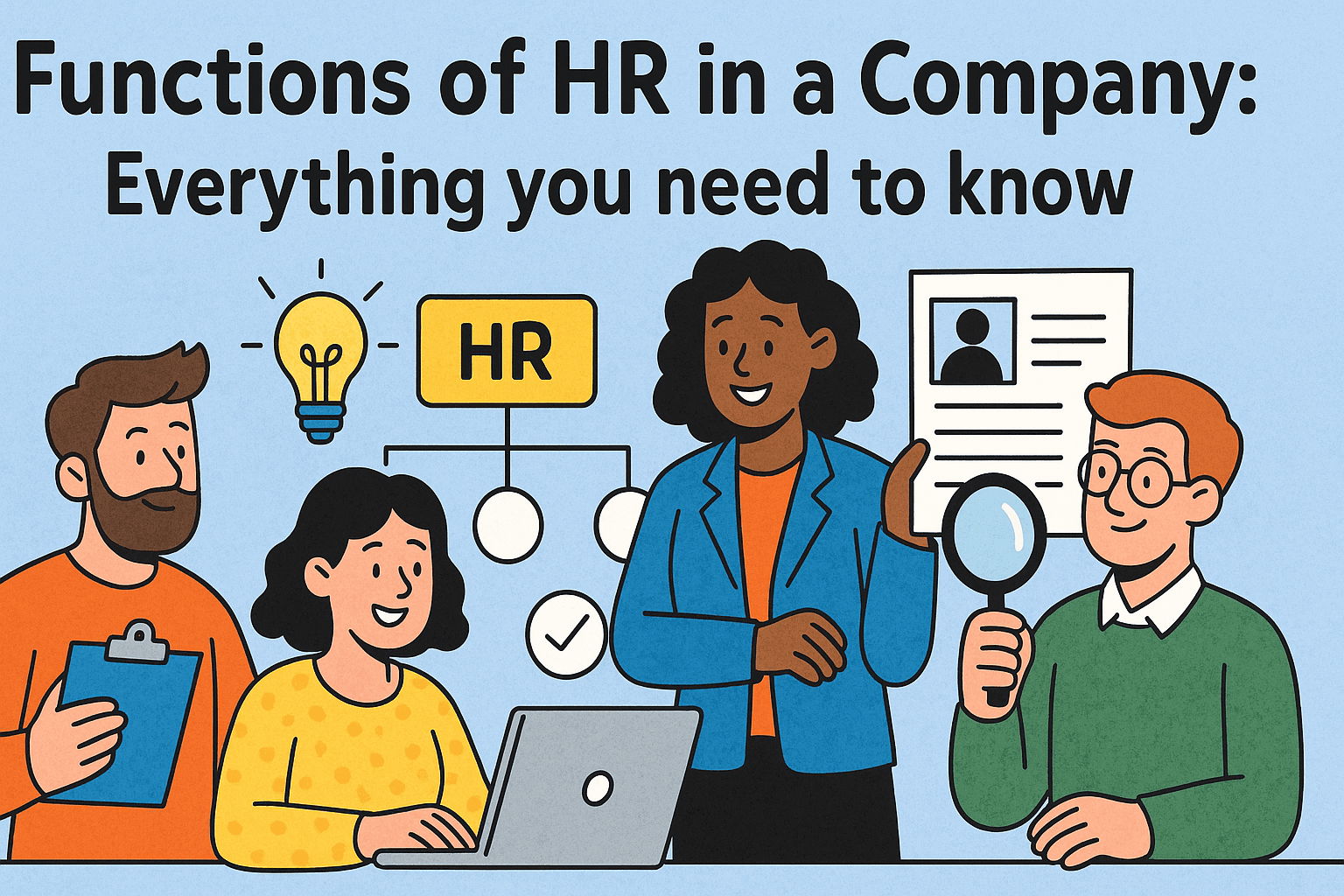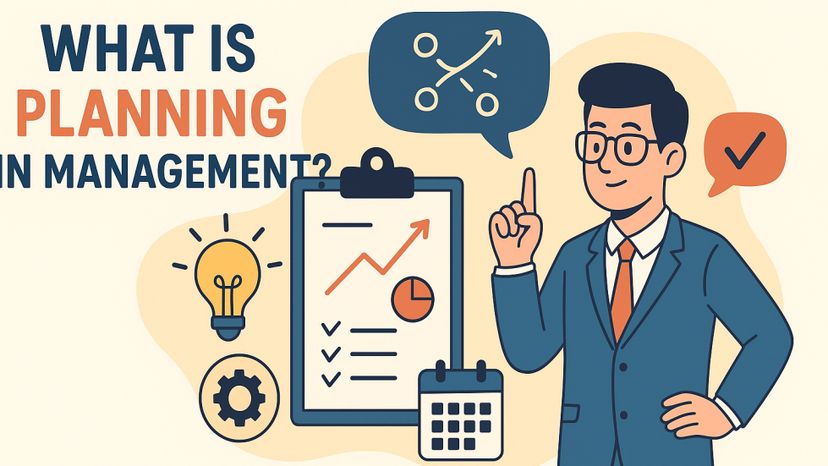An HR (Human Resource) Manager in a company is a senior level professional who leads the Human Resources Department and oversees the daily tasks of the other group members. They are responsible for the smooth functioning of a team. They can be seen as the orchestrator of the people-related aspects of a business, responsible for implementing HR strategies and ensuring the team’s effectiveness.
The HR in a company looks after the employees’ performance, wages, health security and the company policies and employment laws. They also play a crucial role in new recruitment, interviews, hiring and training procedures. HR manager also balance the work environment striving to make it positive and refreshing through various activities.
Key Roles and Responsibilities
The roles of an HR manager might vary depending on the company and the industry it’s related to, but the core responsibilities include:
1. HR Operations and Employee Relations – the HR Manager leads the department by supervising and guiding the team members to ensure all Hr functions are executed efficiently. The HR’s role focuses on maintaining a work friendly, positive environment by fostering good relations between the employees and the management. To handle any grievances and resolving conflict promptly between employees, the HR needs to have a neutral stance on every matter. The HR helps and guides the manager in creating and implementing performance improvement plans for underperforming employees, providing support and clear expectations for improvement. Taking initiatives that foster employee engagement, morale, diversity, equity and a respectful workplace, is also the responsibility of an HR.
2. New Recruitment – this is an important role, hiring new employees is not just about filling vacancies but finding and attracting the right talent that aligns with the company’s culture and future needs. They need to develop accurate and compelling job descriptions that clearly mention the responsibilities, qualifications and follow a structure; this can only be done by understanding the specific requirements of each role, for sourcing candidates, utilizing various online platforms such as Naukri, LinkedIn, Indeed is necessary. During the selection of a candidate, the HR reviews the resume, conducts initial interviews and administers the skill assessment. After selecting the candidates, preparing and providing offer letters, negotiating salary and benefits, all these fall under the HR’s role.
3. Training and Development – This role of the HR is entirely dedicated to the employee’s development and career growth. This function focuses on developing and honing employee’s skills, knowledge and overall performance. This investment in the workforce is necessary to meet the future business needs. The training required for the betterment of the company as well as the employees the HR has to identify skill gaps through employee survey, manager feedback and strategic planning. The HR is responsible to design and develop training programs and materials, which consists of various workshops, external courses, etc. Aligning training initiatives with performance management goals, to ensure the employee’s potential meet the performance expectations. To evaluate the effectiveness of the training programs , HR needs to do assessment through feedbacks provided by the participating employee’s and measure the improvements in productivity of the employee’s.
Skills required to be an HR
To become an HR manager in a company, some basic skill set is required which is foundational regardless of the specific HR role.
1. Communication Skills – the HR is the team leader and manages different aspects of an employee, to be better at this role they ought to have good communication skills. They have to converse with people from different fields on a regular basis, with current employees, new hires, interns and managers. The must have the ability to pass information clearly and concisely and also to listen actively. They need to explain company’s complex policies. Deliver training, mediate conflicts and provide constructive feedback.
2. Critical Thinking – the HR needs to deal with complex conflicts on a daily basis, difficulty in hiring a new employee for a niche role, shaken team morale, a compliance issue with a new law, a manager struggling with an employee’s performance; to effectively manage these problems, the HR require critical thinking and problem-solving skills.
3. Adaptability – HR managers need to be agile and have zeal to learn new things, willing to embrace new ideas, technologies and workforce. The HR’s role is dynamic, influenced by advancing technologies, changing working laws, economic shifts and new workplace trends. Adaptability ensures relevancy and effectiveness in a rapidly changing environment.
4. Legal Adherence – HR professionals must be aware of the existing labour laws, regulations and industry trends. They need to make sure that all the company policies and practices adhere to these laws to avoid lawsuits and legal case. Along with legal compliance, HR must base his decisions on ethical judgements, making it fair and unbiased, to value the company’s rights and the employee’s integrity, even when faced with pressure or difficult choices.
Salary
The salary of an HR in India depends on various factors such as experience, qualification, skills and specialization, industry, specific role in the company, type of the company, location, etc. However, the average annual salary of an HR in India can range between 10-15 lakhs per year.
Functions of HR in a Company : Everything you need to know

Ipshita Pokhriyal

Take our AI-powered Multi Dimensional Psychometric Test
Take Test Now
Only for INR 999/-
Conclusion
Human Resource Manager is a rewarding role for people who enjoy working with diverse individuals, solving critical challenges, contributing to company’s growth, have skills to manage and lead a team, have emotional intelligence to deal with people belonging to different groups, providing training to new recruitment and can managing legal policies. HR with a specialization opens door to opportunities across different industries. To know how to become an HR in India or have any HR related questions, read high quality and detailed blogs on Infigon Futures.
Subscribe to our
Newsletter
Related Blogs

Transitioning from High School to University
Ipshita Pokhriyal

Artificial Intelligence in Education- A Tool to Help Career Planning
Saima Bhalla

Top Affordable Countries For Indian Students to Study Abroad
Bhavna

Smart Guide to Student Loans
Madhulika Dutta

STUDENT BUDGETING TIPS
Bhavna

Merchant Navy Pay 2025: Explore Salaries, Benefits, and Career Scope
Madhulika Dutta

What is Planning in Management?
Ipshita Pokhriyal

The Art of Writing Leave Application: How to Write a Leave Application for the Office
Saima Bhalla

Self Introduction in English: Structure, Examples & Tips
Tanaya

How To Write A Joining Letter: Samples, Formats and Tips
Tanaya